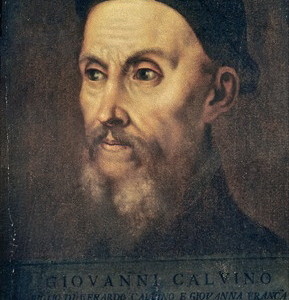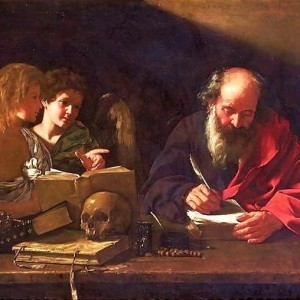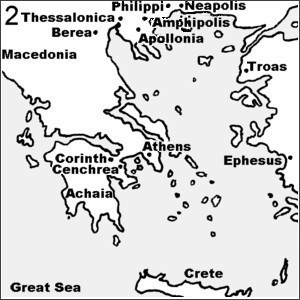Brian Edwards In continuing my search for a principled basis for the Protestant canon of Scripture, I found what looked to be the perfect fit. It’s a talk called “Why 66?,” an hour long presentation by the Evangelical theologian Brian Edwards, which sought to answer, for a Protestant audience: (I, 6:37). “So what is the… Continue reading Why Not 66: Answering Brian Edwards’ Arguments for the Protestant Canon (Pt. I)
Tag: apocrypha
Is Scripture Self-Attesting?
One of the most glaring problems within Protestantism is on the authority of the Bible: how do we know which Books are sacred Scripture? How can a Christian possibly know which Books belong in the Christian Holy Book without learning this from the Christian Church? Titian, John Calvin (16th c.) As Catholics, we’d argue that… Continue reading Is Scripture Self-Attesting?
Defending the Deuterocanon, Book by Book (Part II)
On Tuesday, we explored why we Catholics have Tobit, Judith, Wisdom, and a longer version of Esther in our Bibles. Today, we’ll discuss why we have the other Deuterocanonical books: Sirach, Baruch, 1st and 2nd Maccabees, and the longer version of Daniel. V. Sirach (Ecclesiasticus) The Book was Probably Referenced by Jesus Christ: Sirach 27:6… Continue reading Defending the Deuterocanon, Book by Book (Part II)
Defending the Deuterocanon, Book by Book (Part I)
Much has been said, here and elsewhere, on why Catholics have 73 Books in our Bibles, instead of the mere 66 that our Protestant brethren have, or why we have longer versions of Daniel and Esther than Protestants. The Books in question, the Deuterocanon, are often defended as a group, as I did against arguments… Continue reading Defending the Deuterocanon, Book by Book (Part I)
Which Books Were in Early Christian Bibles?
What canon of Scripture did the earliest Christians use? A Protestant going by the handle Lojahw (Lover of Jesus and His word) argues that it was the modern Protestant Bible. Specifically, he claimed that: Bartolomeo Cavarozzi, St. Jerome in His Study (1617) There were at least nine church fathers from the second through the fourth centuries… Continue reading Which Books Were in Early Christian Bibles?
Jim Crow and the Protestant Bible
In the past, I’ve argued against Protestant special pleading on Tradition. I asked, “if an individual Christian declares that all (or virtually all) Christians on Earth misunderstand core elements of the Gospel, but that he understands it correctly, could he be right?” The answer appears to be no, unless he’s one of the Reformers. Today, I want… Continue reading Jim Crow and the Protestant Bible
The Catholic Connection to Hanukkah
Last night marked the first night of the Jewish holiday of Hanukkah (or Chanukah). What you may not know is the connection between Hanukkah and Catholicism. Namely, the festival of lights celebrates the events of 1 and 2 Maccabees, which Catholics and Orthodox consider Scripture, but Protestants and Jews don’t. I’ll let Professor Jon Levenson, professor of… Continue reading The Catholic Connection to Hanukkah
John the Baptist and the Canon of Scripture
Busy day today, but you should check out Devin Rose’s most recent blog post, in which he points out something that I’d never thought of. Protestantism typically views the prophetic age of the Old Covenant as ending long before Jesus, with a lengthy “intertestamental period” of about four hundred years. They claim that the ancient Jews… Continue reading John the Baptist and the Canon of Scripture
Prayers for the Dead: Memorial Day in 2 Maccabees
Since this Monday is Memorial Day, I thought it would be fitting to talk briefly about prayers for the dead. This is particularly so since the most explicit Scriptural depiction of prayers for the dead involves praying for the souls of dead soldiers. It comes from 2 Maccabees 12:38-46: Judas rallied his army and went to… Continue reading Prayers for the Dead: Memorial Day in 2 Maccabees
Jesus Christ and the Old Testament Canon
Yesterday, I argued that you cannot derive an accurate Old or New Testament canon from simply following the sources used by New Testament authors. They quote approvingly of Enoch and Epimenides, while failing to mention Esther, yet of the three, only Esther is considered inspired. But there’s a reason that the New Testament isn’t a reliable way… Continue reading Jesus Christ and the Old Testament Canon







